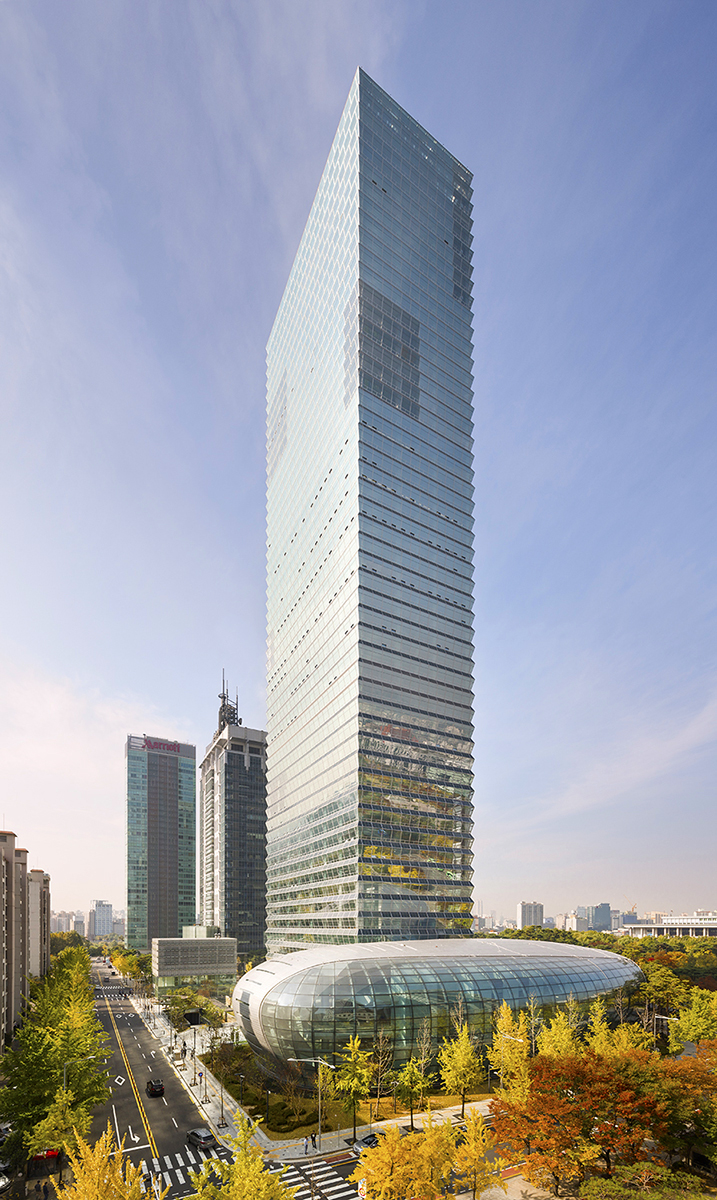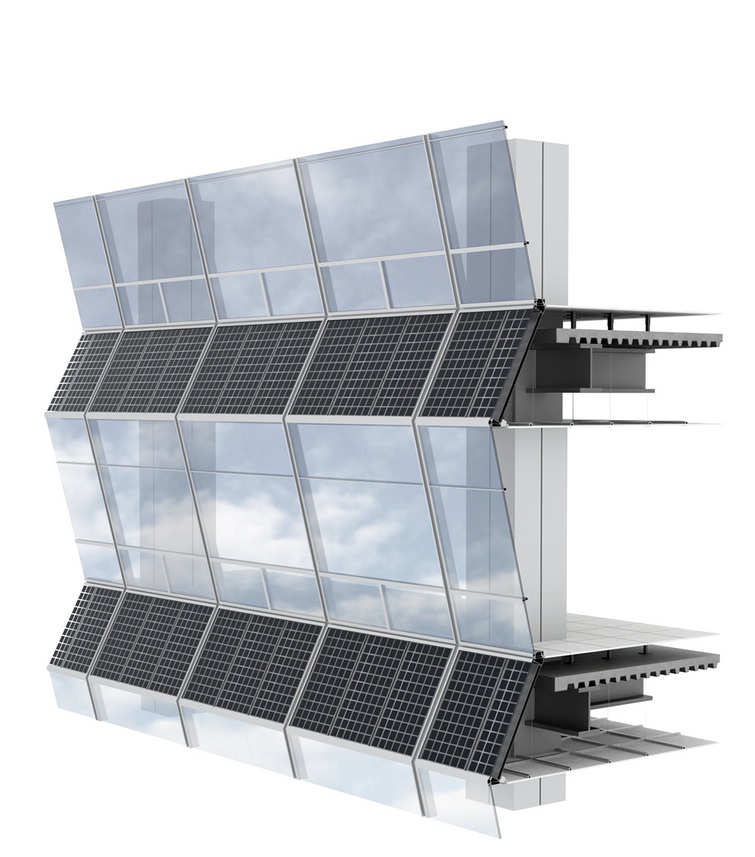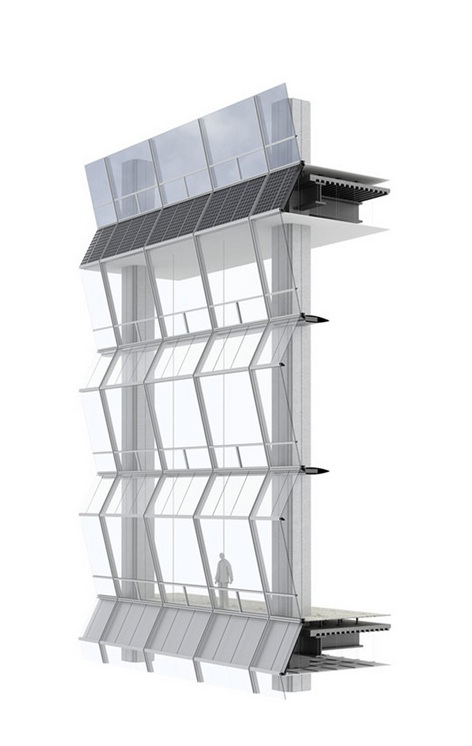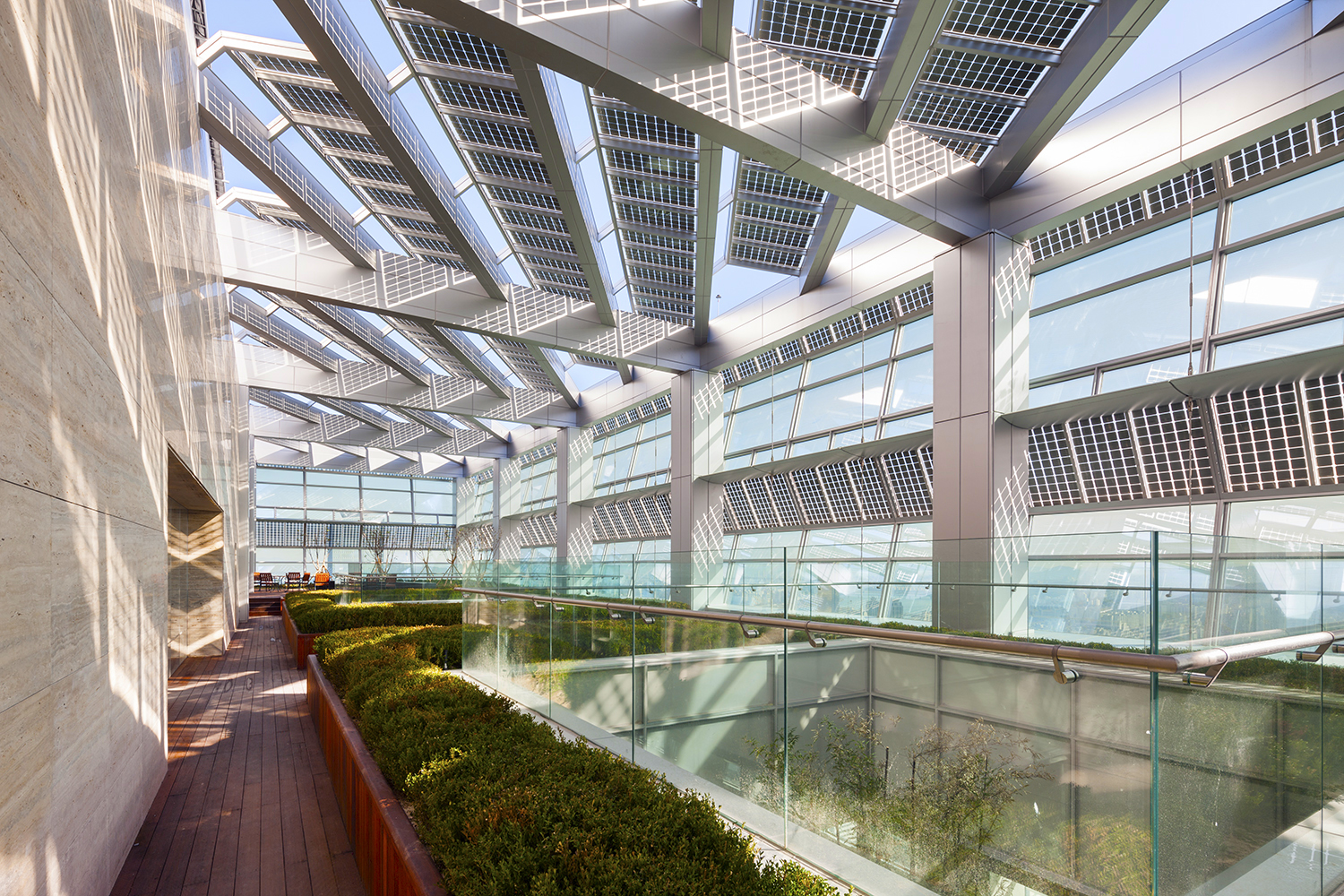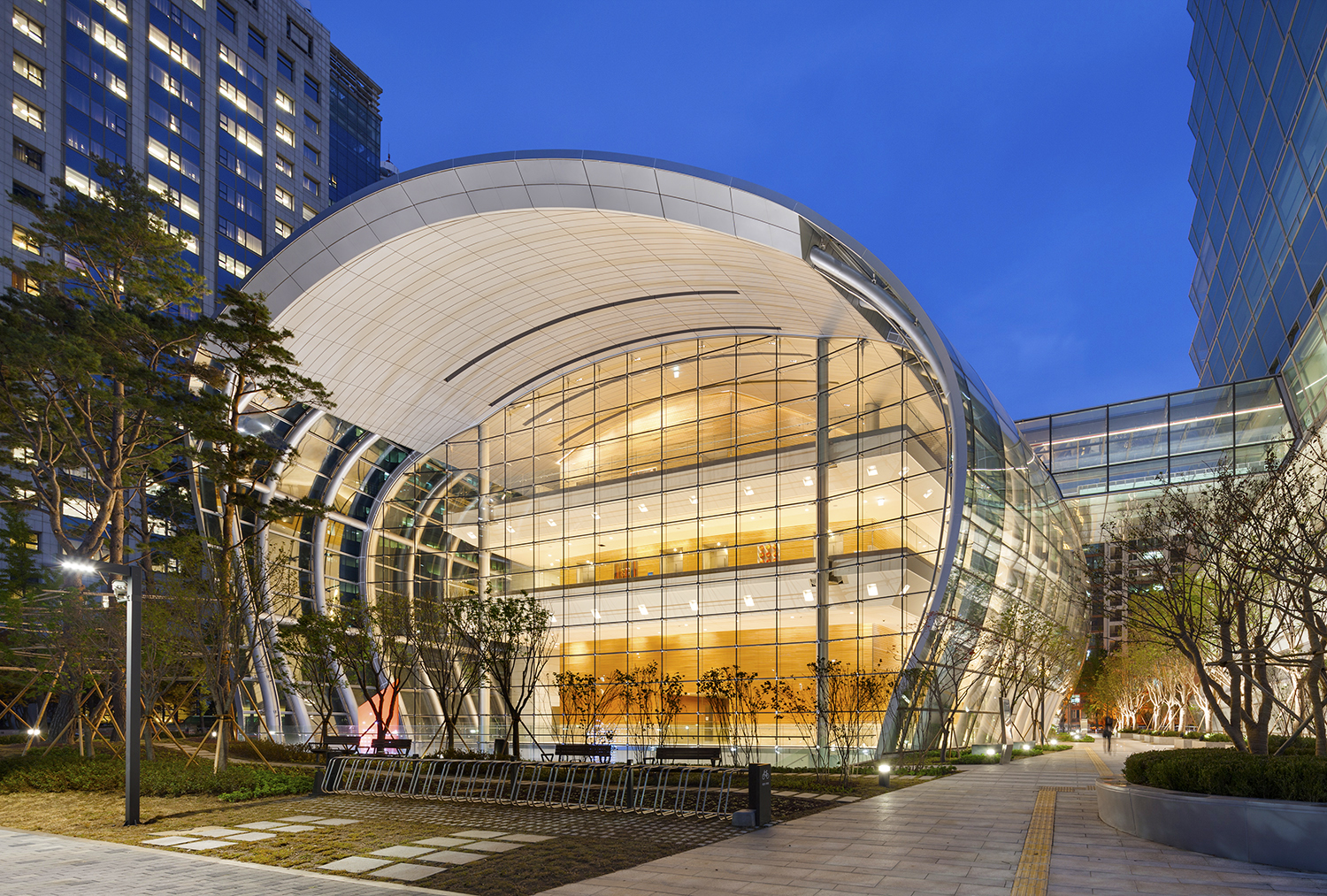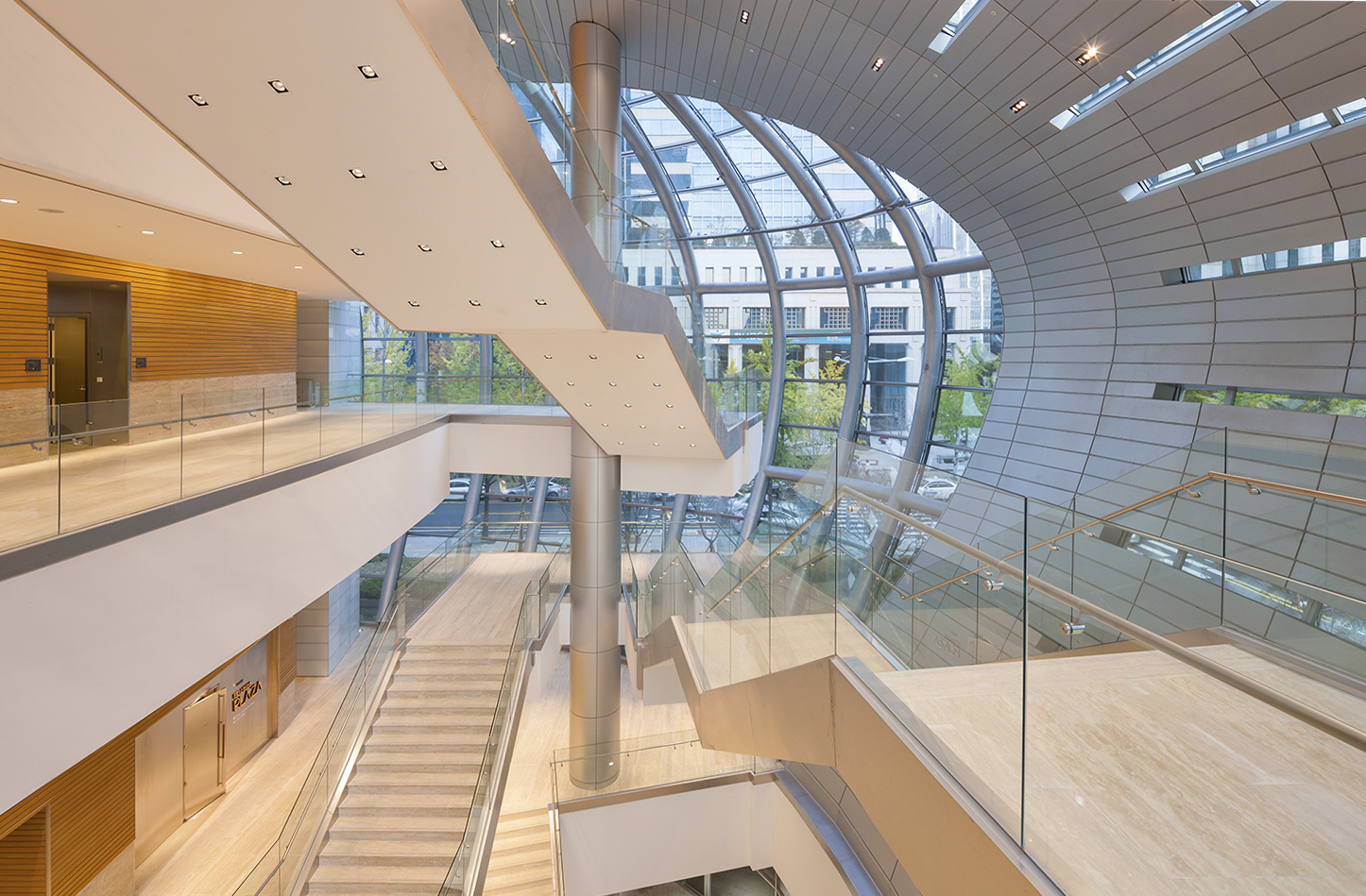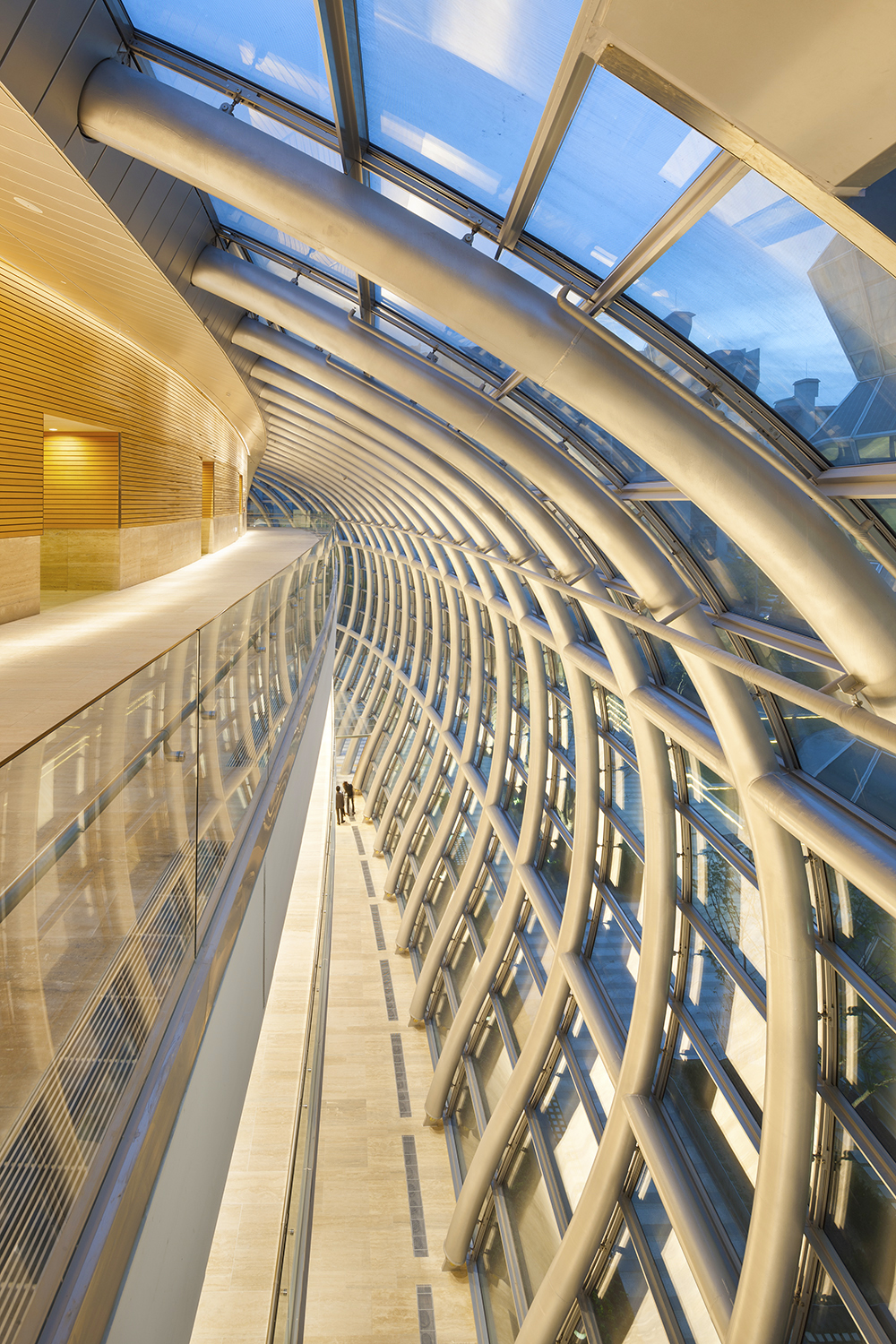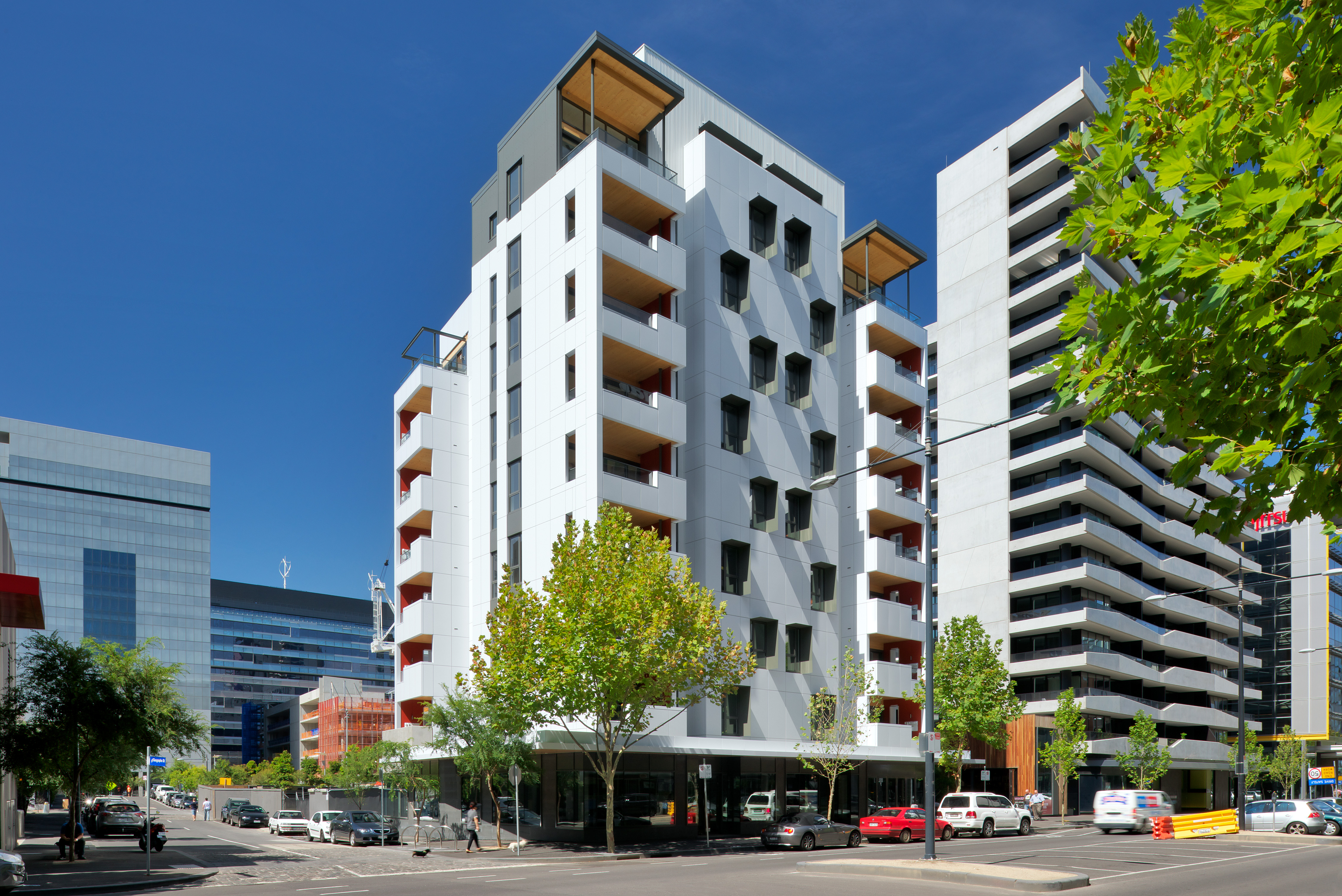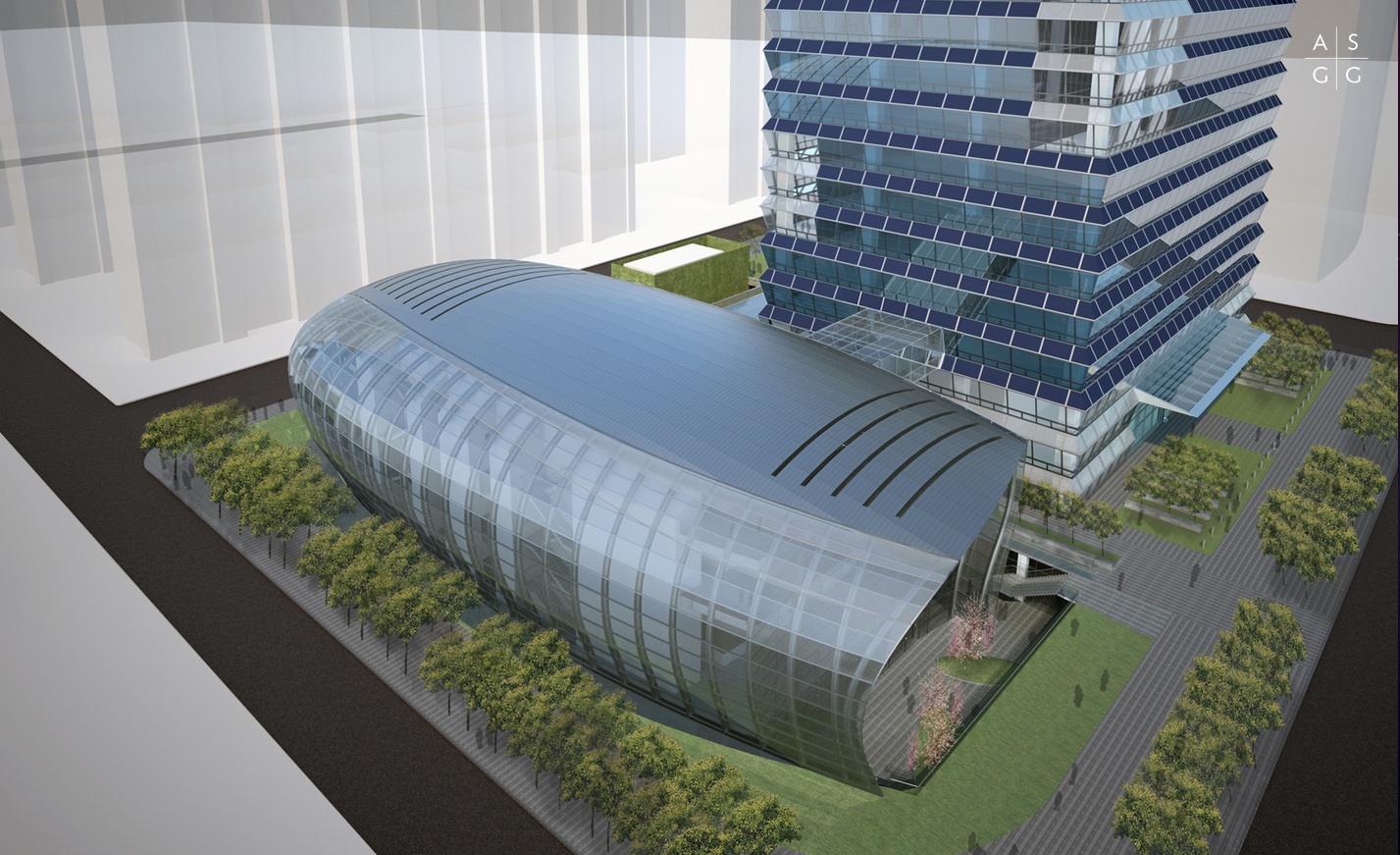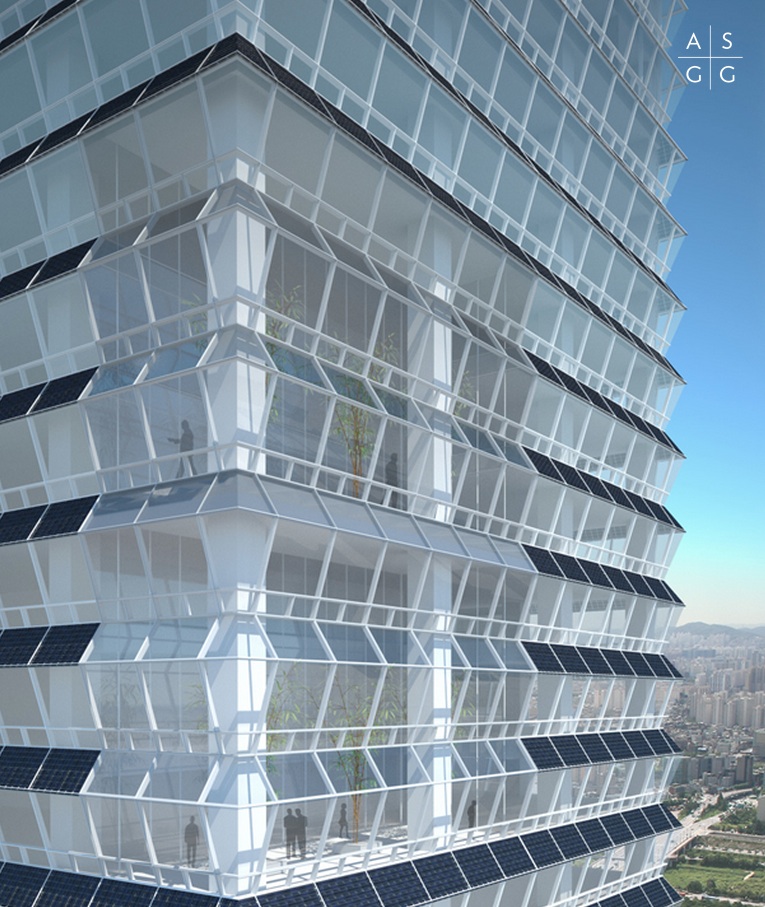Adrian Smith + Gordon Gill Architecture (AS+GG) has announced the public opening of the new head offices for the Federation of Korean Industries (FKI).
"FKI Headquarters represents a new exterior wall typology that both integrates significant quantities of photo voltaic panels into the exterior wall and slopes the vision glass at an angle that generates self-shading and allowing less reflective glass to be used. The result is a unique folded exterior texture that is both purposeful and distinctive" says Adrian Smith.
The 50-story, 240-meter tower features an innovative exterior wall, designed specifically for the project. The building’s unique skin will help reduce the internal heating and cooling loads and collect energy through photovoltaic panels that are integrated into the spandrel areas of the southwest and northwest facades.
By angling the spandrel panels 30 degrees upward toward the sun, the design is able to maximize the amount of energy collected, generating enough power to help maintain the electrical systems throughout the tower core and the office spaces.
Just below the spandrel panels, the vision panels are angled 15 degrees downward toward the ground, minimizing the amount of direct sun radiation and glare. Together, the alternating spandrel and vision panels create a dynamically rippled façade that is both environmentally progressive and visually striking, giving the tower a unique architectural presence on the skyline.
The interior of the building takes advantage of the floor to ceiling windows of the exterior wall, offering an abundance of natural light to office spaces and corridors as well as extensive views of neighboring Yeoido Park, the Han River and the surrounding city of Seoul.
The completed tower includes several indoor garden/atrium spaces that enhance the workplace environment with natural elements of wood, bamboo and other native plants. The roof top atrium space features more custom photovoltaic panels.
“The ideal angle of the PV panel placement on the roof was studied in detail,” says Gordon Gill, “In a relatively unconfined space, PVs would normally be angled upward at 30 degrees but within the limited area of the roof, we determined that a 10-degree angle allowed for more panels to be installed closer together, minimizing the effect of the panels casting shadows on each other and ultimately producing more solar energy for the building.”
AS+GG Partner Robert Forest adds, “The tower features one of the most efficient solar electric facades in the world in a cost effective manner, proactively expanding Korea's goal of advancing renewable energy generation in buildings.”
The sculptural podium piece is located on central Yeoi-Dae-Ro Avenue, further promoting the tower’s public identity. The podium amenities, available for public use include a banquet hall, central restaurant and conference center.
The podium will be available for international conferences with a large first floor banquet hall and smaller conference rooms of various sizes located on the second and third floors. The multi-purpose nature of the podium is another way that the FKI building will become a new city centerpiece for Seoul.
AS+GG collaborated with the engineering firms Thornton Tomasetti and Environmental Systems Design, as well as the local firm Chang-Jo Architects, on the project.
The Building Team included:
Adrian Smith + Gordon Gill Architecture (AS+GG) is dedicated to the design of high-performance architecture in a wide range of typology and scale, from low- and mid-rise residential, commercial and cultural buildings to mixed-use supertall towers and new cities. The office uses a holistic, integrated design approach that explores symbiotic relationships with the natural environment. AS+GG is currently working on projects for clients in the United Arab Emirates, Saudi Arabia, China, and the United States. The partnership was founded in 2006 by Adrian Smith, Gordon Gill and Robert Forest. For more information, please visit www.smithgill.com.
Thornton Tomasetti provides engineering services to clients worldwide on projects of all sizes and complexity. Thornton Tomasetti is responsible for the structural design of some of the world’s tallest buildings, including the Petronas Towers, Taipei 101, Ping An International Finance Center in China and Federation Tower in Russia. The firm is committed to creating the best structural solutions through technical ingenuity, pursuit of excellence and responsiveness to client needs. Thornton Tomasetti has offices across the United States and in Asia, Europe and the Middle East. For more information, please visit www.ThorntonTomasetti.com.
Environmental Systems Design, Inc. (ESD) has provided engineering design solutions on thousands of buildings in the United States and throughout the world. With over 220 engineering and design professionals, ESD is one of the largest consulting engineering firms in the Midwest. ESD offers consulting engineering design services in mechanical, electrical, plumbing, fire protection, LEED, sustainable design, commissioning, and technology. ESD supports a diverse range of markets including commercial, health and science, education, mission critical, residential, assembly, cultural, theaters, energy plants, transportation and international. For more information, please visit www.esdesign.com.
Since 1984, Chang-jo Architects has been one of the leading professional architectural firms in Korea, providing total and comprehensive design services in architectural design, urban planning, landscape design, engineering and construction management. By possessing such an integrated core of services, they deliver to their clients the best service and value through intelligent design and advanced technology. Learn more about Chang-jo Architects at www.cja.co.kr.
Related Stories
Adaptive Reuse | Oct 22, 2024
Adaptive reuse project transforms 1840s-era mill building into rental housing
A recently opened multifamily property in Lawrence, Mass., is an adaptive reuse of an 1840s-era mill building. Stone Mill Lofts is one of the first all-electric mixed-income multifamily properties in Massachusetts. The all-electric building meets ambitious modern energy codes and stringent National Park Service historic preservation guidelines.
MFPRO+ News | Oct 22, 2024
Project financing tempers robust demand for multifamily housing
AEC Giants with multifamily practices report that the sector has been struggling over the past year, despite the high demand for housing, especially affordable products.
Performing Arts Centers | Oct 21, 2024
The New Jersey Performing Arts Center breaks ground on $336 million redevelopment of its 12-acre campus
In Newark, N.J., the New Jersey Performing Arts Center (NJPAC) has broken grown on the three-year, $336 million redevelopment of its 12-acre campus. The project will provide downtown Newark 350 mixed-income residential units, along with shops, restaurants, outdoor gathering spaces, and an education and community center with professional rehearsal spaces.
Office Buildings | Oct 21, 2024
3 surprises impacting the return to the office
This blog series exploring Gensler's Workplace Survey shows the top three surprises uncovered in the return to the office.
Healthcare Facilities | Oct 18, 2024
7 design lessons for future-proofing academic medical centers
HOK’s Paul Strohm and Scott Rawlings and Indiana University Health’s Jim Mladucky share strategies for planning and designing academic medical centers that remain impactful for generations to come.
Sports and Recreational Facilities | Oct 17, 2024
In the NIL era, colleges and universities are stepping up their sports facilities game
NIL policies have raised expectations among student-athletes about the quality of sports training and performing facilities, in ways that present new opportunities for AEC firms.
Codes and Standards | Oct 17, 2024
Austin, Texas, adopts AI-driven building permit software
After a successful pilot program, Austin has adopted AI-driven building permit software to speed up the building permitting process.
Resiliency | Oct 17, 2024
U.S. is reducing floodplain development in most areas
The perception that the U.S. has not been able to curb development in flood-prone areas is mostly inaccurate, according to new research from climate adaptation experts. A national survey of floodplain development between 2001 and 2019 found that fewer structures were built in floodplains than might be expected if cities were building at random.
Seismic Design | Oct 17, 2024
Calif. governor signs limited extension to hospital seismic retrofit mandate
Some California hospitals will have three additional years to comply with the state’s seismic retrofit mandate, after Gov. Gavin Newsom signed a bill extending the 2030 deadline.
MFPRO+ News | Oct 16, 2024
One-third of young adults say hurricanes like Helene and Milton will impact where they choose to live
Nearly one-third of U.S. residents between 18 and 34 years old say they are reconsidering where they want to move after seeing the damage wrought by Hurricane Helene, according to a Redfin report. About 15% of those over age 35 echoed their younger cohort’s sentiment.


